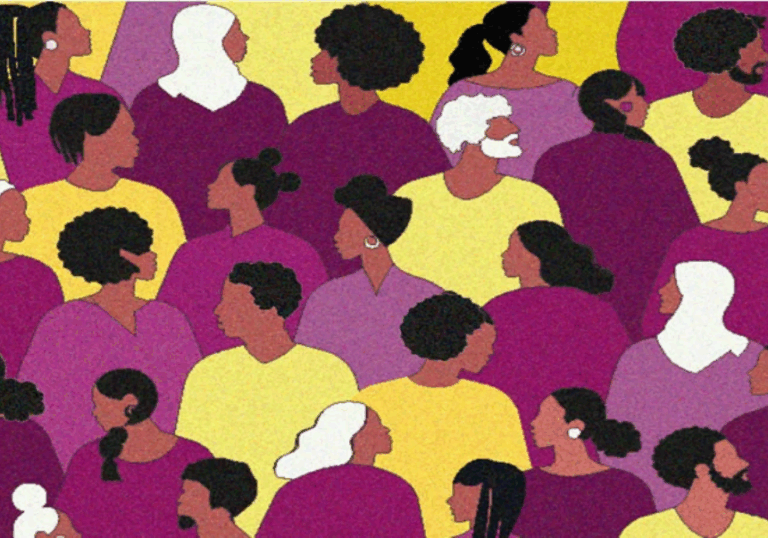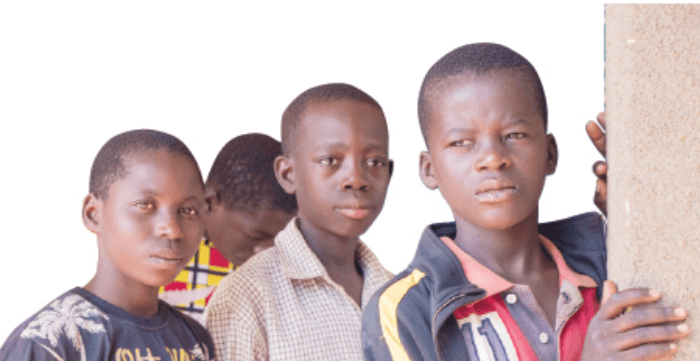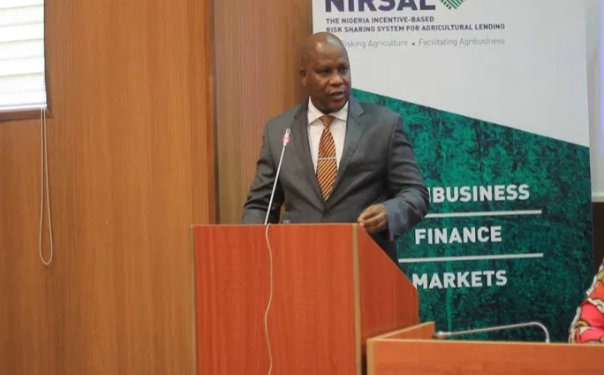Bound by the duty of care, Nigeria’s healthcare givers on the COVID-19 frontlines are taking on enormous personal risks and too often working under precarious conditions in their bid to save others. This is turning the frontline foot soldiers into an endangered species, reports Associate Editor ADEKUNLE YUSUF
Abdrafiu Adeniji, President of the National Association of Nigeria Nurses and Midwives (NANNM), believes the frequent scarcity of medical consumables in hospitals and COVID-19 treatment facilities is more fundamental than they appear.
“We have the issue of treatment that cuts across federal health establishments and state health institutions. The situation we are having is that most of the people that are working in the health sector lack adequate infrastructure. Now the government is trying to grapple with the issue of PPE. But it is not only PPE that we need in the treatment of COVID-19 patients; we need monitors, equipment, etc., to detect the appropriateness of the PPE that we wear.
“Whereas in (more) advanced countries, machines will assess your application of the PPE. If there is any tendency for you to contract an infection, the machine will tell you whether you are 95 per cent compliance or more. It will also show you the areas where it is not properly applied. But you don’t even have anything to monitor because this is Nigeria where even the PPE we are wearing is just nylon. And there is also the issue of the quality of all these things that the PPEs are made of. The people that are working in the isolation centres are supposed to use grade one, which is supposed to prevent infection.
“The situation now is that we need the government to look into areas whereby people working in those areas will be motivated and will be taken care of in terms of the policy. As we are talking, no person has ever filled the insurance premium form as health insurance for the health workers. And there is no way an insurance scheme will be in place for the person that is being covered not to know – you have to sign the paper with the insurance brokers. All these things are not in place. Hazard and inducement allowance are not paid and insurance is not there,” he said.
Knocks galore for state and federal governments on welfare package
Across Nigeria’s 36 states, including FCT, health workers on the frontlines said there is no cause for them to smile as far as their welfare is concerned. They said both the federal and state governments have failed to honour promises, especially in the payment of allowances, which they said are either slashed arbitrarily at some point or always late in coming. Besides strike actions in states called by local chapters of professional unions that abound in the health sector in the last six months, NARD has instigated nationwide downing of tools in June and August during COVID-19 emergency.
According to Dr. Aliyu Sokomba, NARD President, health workers were compelled to abandon their duty post as a result of the government’s failure to honour agreements reached with resident doctors. He disclosed that at the heart of the issues that necessitated recent strike actions: non-payment of health workers’ hazard allowance, lack of life insurance for doctors, and the dearth of PPE in hospitals, among other reasons. “They have not made PPE available in various institutions across the country; we don’t have life insurance and our residency programme has not been funded since last year. We have the problem of life insurance procurement for our members.
“We have demanded in the past that the life insurance package, which is already in existence as a government policy, be implemented. Most of our members that have died, we want their next of kin to get their deaths in service benefit. We were told that insurance companies have been given needed funds to commence payment but not a single person has been paid,” Sokomba lamented before government eventually acceded to health workers’ demands on Wednesday 9th of September.
Immediately the striking health workers returned to work, the federal government, which said N30.5 billion was spent on COVID-19 in the first four months, disclosed that additional N8.9 billion had been approved to settle welfare issues raised by frontline workers. On September 11, the Secretary to the Government of the Federation (SGF), Boss Mustapha, who doubles as Chairman of PTF on Covid-19, said the additional N8.9 billion was meant for Covid-19 hazard allowances for all health workers in Nigeria. He added that the procurement of PPE for hospitals and isolation centres would also be prioritised moving forward. “I am pleased to announce that Mr. President has graciously approved additional N8.9bn for COVID-19 hazard allowance to all medical health workers. Besides, the procurement of Personal Protective Equipment (PPE) for hospitals and isolation centres will be given priority,” he said.
At the beginning of the fight against the pandemic, the federal government had promised a special COVID-19 hazard and inducement allowance of 50 per cent of Consolidated Basic Salary to health workers in the federal health institutions and designated Covid-19 centres. But professional associations in the healthcare industry said the government did not fulfil its promises. Before this, health workers received N5,000 as hazard pay across the board – though health unions said they are optimistic that a new allowance is being worked out.
Just like Nigeria, South Africa, despite being one of the worst-hit countries in the world, was recently rocked by protests by healthcare workers over poor working conditions and corruption in the procurement of PPE. On September 3, protesters gathered in Pretoria and Cape Town, charging that the lives of healthcare workers are endangered as a result of inadequate supplies of protective equipment like surgical masks. The National Education, Health and Allied Workers’ Union threatened that its 200,000 public workers would go on strike if their issues were not addressed. They also demanded danger pay for workers on the frontlines.
It is even worse in Egypt where some 60,000 doctors are employed, with remunerations ranging between EGP 3,000 ($190) and 10,000 ($635) a month. Egyptian medical professionals said they were disappointed by a new pay rise ordered in March by President Abdel Fattah el-Sisi to support health workers battling the outbreak of Covid-19. A 75 per cent increase in monthly allowances for medical personnel was ratified as a gesture of appreciation, a move that would cost the government EGP 2.25 billion ($142m). The new salary increase ranges between EGP 700-1225 ($44-$78) for various medical professions, but doctors complained that the net raise would be equal to just $15-$25 after tax deductions.
This has culminated in a campaign of intimidation, harassment, and detention against medical professionals who have spoken out against the government’s inadequate response to the pandemic. As of August, Egypt’s National Security Agency has detained at least 10 health care workers for voicing concerns over insufficient personal protective equipment, a lack of testing and infection control measures, overcrowded hospitals, and other criticisms of the government’s handling of the COVID-19 crisis. The Egyptian state has accused these health workers of “spreading false news,” “misusing social media,” and “membership in a terrorist group.”
But Ghana is busy setting the pace in how to fete essential service workers. While medics in Nigeria earn N5,000 ($12.95) as monthly hazard allowance, healthcare workers in Ghana are not only paid hazard allowances but have access to other motivation packages for being exposed to hazards that put them at risk. In a nationwide broadcast on 5 April, Ghana’s President Nana Akufo-Addo announced incentives for frontline health workers as well as for the general public. Incentives for the frontline health workers include exemption from the payment of tax on their employment emoluments for three months commencing from April 2020; daily allowance of GHS150 (approximately $26) payable to those undertaking contact tracing; additional allowance of 50 per cent of their basic salary per month for four months commencing from March; insurance package with an assured sum of GHS350,000 (approximately $60,345). To enable the populace to wash their hands frequently, the Ghanaian government also promised to absorb the water bill of every resident for three months commencing from April.
Frontline health workers as endangered species
As at 29th August, NARD, which contributes the bulk of doctors drafted into Covid-19 response team in the country, said 321 out of its 1,031 members have tested positive, 68 have recovered and 14 doctors have died. It was a similar sad story among laboratory experts. As at the same date, the Association of Medical Laboratory Scientists of Nigeria (AMLSN) said 150 out of its own 800 members engaged in fighting the spread of the virus have tested positive for Covid-19; while 28 have died.
Also, Nigerian pharmacists under the aegis of the Pharmaceutical Society of Nigeria (PSN) and Association of Hospital and Administrative Pharmacists of Nigeria (AHAPN) announced in June that six of their 359 frontline workers had tested positive to Covid-19. The PSN President, Mazi Sam Ohuabunwa, said besides 359 pharmacists directly involved in the war against Covid-19 in hospitals and isolation centres, thousands of community pharmacists are out there being daily exposed to preclinical or asymptomatic patients who see pharmacies as their first port of call any time they need healthcare service.
Casualties on the frontlines are however not limited to Nigeria, as infection and fatality rates among healthcare givers deployed into COVID-19 war in more advanced countries also appear more disturbing. In South Africa, one of the worst-hit countries in the world with 671,000 cases and 16,398 deaths as of September 28, more than 27,000 health workers were reported to have tested positive in the line of duty. As of August 12, a staggering 240 health personnel have died due to COVID-19-related complications. Out of the total number of the infected medical personnel, 1,644 were doctors, 14,143 were nurses, while 28 were port health workers and 11, 545 belonged to other miscellaneous categories in the healthcare system.
In July, WHO said health workers account for 10 per cent of all infections in the world (representing 1.4 million cases out of 13.8 million total global infections then); while also warning of the threat Covid-19 poses to health workers across Africa after more than 10 000 health workers in the continent have been infected. “The growth we are seeing in COVID-19 cases in Africa is placing an ever-greater strain on health services across the continent. This has very real consequences for the individuals who work in them, and there is no more sobering example of this than the rising number of health worker infections,” said Dr. Matshidiso Moeti, WHO Regional Director for Africa.
According to a shocking report issued on September 3 by Amnesty International (AI), a United Kingdom-based non-governmental organisation that focuses on human rights, more than 7,000 health workers have died globally after contracting Covid-19 – a direct consequence of failure to protect those on the frontlines in the fight against the raging pandemic. This humongous death toll represented “a crisis on a staggering scale” and renewed an urgent call for governments in all countries to provide healthcare professionals with the necessary equipment so they can continue their vital work, said Steve Cockburn, AI’s head of economic and social justice.
“For over seven thousand people to die while trying to save others is a crisis on a staggering scale. Every health worker has the right to be safe at work, and it is a scandal that so many are paying the ultimate price. Throughout the pandemic, governments have hailed health workers as heroes, but this rings hollow when so many workers are dying from a lack of basic protection,” said Cockburn.
‘We are very grateful for our health workers’ efforts and sacrifices’
Having presided over the federal institution that has played a leading role in prosecuting the war against Covid-19, NCDC Director-General, Dr. Chikwe Ihekweazu, was asked to provide information about how many health workers are on the frontlines in Nigeria, among other things. He said it is a difficult thing to do. His reason: it is impossible to quantify the actual number of health workers in the fight against Covid-19 in the country because the personnel are scattered across various facilities in 36 states and the FCT.
“It is difficult to quantify the number of health workers involved in Nigeria’s Covid-19 response, as we have personnel working across various capacities. There are health workers providing care to Covid-19 patients; there are others who are involved in the public health response such as risk communications, patient counselling, surveillance, outbreak investigation, sample collection and testing among other activities. Most of the human resources in Nigeria’s health sector have been involved in the response to Covid-19,” Ihekweazu said.
The NCDC boss was, however, forthcoming with the number of healthcare givers that have tested positive so far: Nigeria has so far recorded 2,282 infections among her health workers. “So far, we have recorded 2,282 infections among health workers. However, it is important to note that health workers are also part of our community. They travel home and interact with people in situations where the virus can be transmitted. While most infections may be from health care settings, some have been infected outside of health care settings.
“Notwithstanding, we continue to urge all health workers to practice standard care precautions. Health workers should maintain the required distance where possible and wear appropriate PPE while attending to any patient, irrespective of the condition of the patient. We will continue to provide adequate training, medical supplies and other resources needed by health workers to protect themselves when managing COVID-19 cases,” he said.
Ihekweazu was also full of praises for Nigeria’s health workers, saying their sacrifices would never be forgotten. “We are very grateful for the efforts and sacrifices by our health workers involved in the clinical management and public health response to Covid-19 in Nigeria. For most of us, our lives have changed since the first case was recorded in Nigeria in February. Health workers have to ensure laboratories are running 24-7 to meet the huge demand for testing, work long hours to ensure patients are well cared for and several other response activities. In most cases, we are at higher risk and have to take extra measures to protect ourselves while providing critical service to the country.”
But Prof Innocent Ujah, President of the Nigerian Medical Association (NMA), said it is pointless to talk about how many doctors or other categories of health workers are affected by the virus. Because every life means so much that it cannot be quantified, Ujah stressed that it is presumptuous to say a certain number of doctors or other health workers have died. He believes that all Nigerian doctors – whether in the frontline or not – are affected by the global pandemic because they all tend to patients in hospitals, which may expose them to danger.
“We shouldn’t even be talking about the number of doctors affected. Every doctor in Nigeria is in the frontline of the Covid-19 pandemic – even those in the administration like directors in the ministry also come in contact with patients when they go around. When we are talking about fatalities, we’re not talking about just numbers but we’re talking about human beings. Even one person that dies is very significant – whether a doctor or not, or even patient.
“So the issue of numbers in my opinion is not important. The mere fact that Nigerian doctors and other healthcare workers are dying in the process of protecting Nigerians is something that is unfortunate. It is presumptuous to say a certain number of doctors have died or health workers have died. This is because it is not just a number but a human being. Because if a person (say a doctor) dies, he has a wife, children, mother, brother; and those are the collaterals that come as a result of the death of one person. The whole family is devastated by the death of just one person,” Ujah said. His is a valid point, especially for any country that wants to show that the life of every citizen or resident matters – whether in peacetime or during an emergency.
- Concluded
This report was facilitated by the Wole Soyinka Centre for Investigative Journalism (WSCIJ) under its COVID-19 Reality Check project



